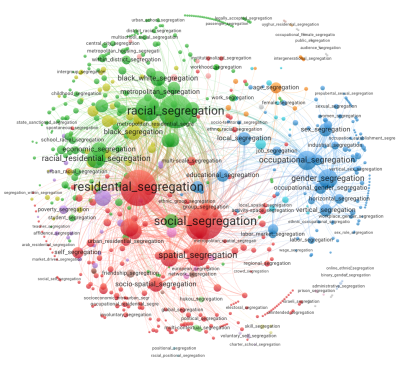Main Page

Segregation is a well-known phenomenon that probably impacts billions of people living in complex societies worldwide. It is a crucial subject across dozens of scientific fields, from Sociology and Urban Studies to Environmental Science and Gender Studies. Our ongoing research found works on segregation in nearly 200 scientific fields.
So what makes segregation such a far-reaching phenomenon, capable of triggering attention in many different areas of knowledge or, more importantly, sweeping into many aspects of social reality? First of all, what is segregation? Definitions may vary. Segregation takes on different forms, which have recently received growing attention. It is a multidimensional phenomenon that manifests over people and places across social groups, situations and contexts and through different means and materialities. However, how does segregation manifest across social and material reality? How many forms of segregation exist? Have the sciences engaged with the problem consciously brought all its facets and manifestations to light?
In our ongoing journey towards understanding and addressing the complexities of segregation, we propose a means to systematically analyse and look into how segregation's different forms and manifestations have been covered across the social sciences. We are decoding the enormous diversity of segregation forms (SFs) by mapping the landscape of segregation research (SR) over a century, combining automated scientometric instruments and interpretive work. Our overview has revealed at least 839 segregation forms explored in the literature across 189 disciplinary fields.
We recognize the importance of a shared vocabulary and a means of helping to organize an enormous transdisciplinary field. The Segregation Wiki (c) project serves as a comprehensive resource, offering definitions and explanations of key terms related to segregation in its various forms. As we delve into this critical topic, our aim is to foster dialogue, increase awareness, and ultimately work towards creating more inclusive and equitable communities. Whether you're a researcher, student, activist, or simply someone interested in learning more, we invite you to explore this glossary and deepen your understanding of segregation and its implications.
If you wish to learn more about our research, please see <under construction>.
